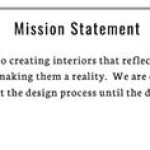Interior Design Jobs Houston: A Comprehensive Overview for Aspiring Professionals
The Houston metropolitan area presents a dynamic and evolving landscape for interior design professionals. A robust economy, coupled with a growing population and a diverse architectural environment, fuels demand for skilled interior designers across various sectors. This article serves as a comprehensive guide to understanding the interior design job market in Houston, outlining key industry sectors, required skills and qualifications, prominent employers, and strategies for career advancement.
The interior design profession extends beyond mere aesthetic considerations. It involves a deep understanding of spatial planning, building codes, accessibility regulations, material science, and project management. Interior designers are tasked with creating functional, safe, and aesthetically pleasing spaces that enhance the user experience, whether in residential, commercial, or institutional settings. The roles within the field can range from conceptual design and space planning to detailed construction documentation and installation supervision. Understanding these multifaceted responsibilities is crucial for any individual seeking a career in interior design in Houston.
Houston's architectural landscape is a melting pot of styles, reflecting its rich history and its status as a major international hub. From historic neighborhoods with Victorian and Craftsman homes to contemporary high-rises and sprawling suburban developments, the city offers numerous opportunities for designers to work on diverse projects. The demand for interior design services is driven by both new construction and renovation projects, catering to a broad spectrum of clients with varied needs and budgets. The following sections will delve into the specifics of the Houston interior design job market and provide insights into navigating this competitive field.
Key Industry Sectors Driving Interior Design Jobs in Houston
The demand for interior design professionals in Houston emanates from several key industry sectors. Identifying these sectors is essential for focusing job search efforts and tailoring skill development.
*Residential Design:
This sector encompasses the design of private homes, apartments, condominiums, and townhouses. Residential designers work directly with homeowners to create personalized spaces that reflect their individual lifestyles and preferences. Projects can range from complete home renovations to simple room makeovers. A strong understanding of space planning, color theory, furniture selection, and material finishes is crucial in this sector. The residential market in Houston is particularly active due to the continuous influx of new residents and a high rate of home ownership.The residential sector benefits from the population growth of Houston, requiring designers to have strong interpersonal skills. The designer must understand that they are not designing for themselves, but for the client.
*Commercial Design:
This sector focuses on designing spaces for businesses, including offices, retail stores, restaurants, hotels, and showrooms. Commercial designers must consider factors such as branding, functionality, employee productivity, and customer experience. Knowledge of building codes, accessibility standards (ADA), and fire safety regulations is paramount. Houston's thriving business environment generates a significant demand for commercial interior designers.Commercial Design often deals with companies who want to maximize their space in a way that benefits their business. A designer should be able to help clients get the most value for their money.
*Healthcare Design:
This sector specializes in designing healthcare facilities, such as hospitals, clinics, medical offices, and assisted living facilities. Healthcare designers must prioritize patient safety, infection control, accessibility, and the creation of healing environments. Specialized knowledge of healthcare regulations and specific design requirements for medical equipment is crucial. Houston's renowned Texas Medical Center, the largest medical complex in the world, creates a constant demand for healthcare interior designers.Healthcare Design is a specialized form of commercial design. Many aspects of business design carry over into healthcare, but the medical nature creates the need for additional skills.
*Hospitality Design:
This sector focuses on designing hotels, resorts, restaurants, bars, and other venues that cater to the hospitality industry. Hospitality designers must create visually appealing and functional spaces that enhance the guest experience and reflect the brand identity. They need to be knowledgeable about current design trends, material durability, and operational efficiency. Houston's vibrant tourism industry and growing restaurant scene contribute to the demand for hospitality designers.Houston's hospitality industry is on the rise, and the need for quality designers is high. A good understanding of the commercial aspects of the business is important for succeeding in this sector.
Essential Skills and Qualifications for Interior Design Roles
Securing an interior design job in Houston requires a combination of formal education, technical skills, and soft skills. Employers typically look for candidates who possess the following qualifications:
*Education:
A bachelor's degree in interior design is generally considered the minimum requirement for entry-level positions. Some employers may prefer candidates with a master's degree, particularly for senior-level roles or specialized areas of design. A degree from a Council for Interior Design Accreditation (CIDA)-accredited program is highly valued. *Technical Skills:
Proficiency in computer-aided design (CAD) software, such as AutoCAD or Revit, is essential for creating detailed drawings and construction documents. Knowledge of 3D modeling software, such as SketchUp or 3ds Max, is also beneficial for creating visualizations and presentations. Familiarity with Building Information Modeling (BIM) processes is increasingly important, particularly for large-scale commercial projects.CAD and BIM are becoming more and more important as the industry embraces technology. Staying current with the latest software developments is critical for success.
*Design Skills:
A strong understanding of design principles, including space planning, color theory, lighting design, and material selection, is fundamental. Candidates should be able to demonstrate their design skills through a well-developed portfolio that showcases their creativity, technical abilities, and problem-solving skills. The portfolio should include a range of projects that demonstrate experience in various design styles and project types.A portfolio is essential for showcasing an interior designer's work. It should be carefully curated to present the designer's best and most relevant projects.
*Soft Skills:
Effective communication, collaboration, and client management skills are crucial for success in interior design. Designers must be able to clearly communicate their ideas to clients, contractors, and other stakeholders. They must also be able to work effectively as part of a team and manage projects efficiently. Problem-solving skills and attention to detail are also essential.Soft skills are often overlooked, but they are vital for success in this field. Designers must be able to build relationships with clients and collaborate effectively with other professionals.
Prominent Employers and Job Search Strategies in Houston
Houston boasts a diverse range of employers in the interior design sector, including large architectural firms, interior design studios, furniture retailers, and construction companies. Identifying these potential employers is crucial for targeting job search efforts.
*Large Architectural Firms:
Many large architectural firms have dedicated interior design departments that work on a variety of projects, including commercial, healthcare, and hospitality designs. These firms often offer comprehensive benefits packages and opportunities for professional development. Examples of prominent architectural firms in Houston include Gensler, Kirksey Architecture, and HOK.Large firms may have more structure and stability than smaller firms, but they can also be more bureaucratic. Candidates should carefully consider their career goals and preferences before applying to a large firm.
*Interior Design Studios:
Numerous specialized interior design studios in Houston focus on specific project types, such as residential design, restaurant design, or retail design. These studios often offer a more intimate and collaborative work environment. Researching and identifying studios that align with individual interests and skills is recommended.Smaller studios may offer more opportunities for creativity and autonomy, but they may also have fewer resources and benefits. Candidates should research the studio's culture and values to ensure a good fit.
*Furniture Retailers:
Some furniture retailers employ interior designers to assist clients with space planning, furniture selection, and overall design concepts. This can be a good entry point into the industry for recent graduates who are looking to gain experience and build their portfolios.Furniture retailers may offer a different type of experience than design firms, focusing more on sales and customer service. This can be a good option for candidates who enjoy working directly with clients and have strong communication skills.
*Construction Companies:
Some construction companies have in-house interior design teams that work on design-build projects. This allows for a more integrated approach to design and construction.Working for a construction company can provide valuable insights into the construction process and allow designers to collaborate closely with contractors. However, the focus may be more on functionality and cost-effectiveness than on aesthetics.
Effective job search strategies include networking with industry professionals, attending industry events, utilizing online job boards (such as Indeed, LinkedIn, and Archinect), and directly contacting potential employers. Building a strong online presence through a professional website or LinkedIn profile is also crucial. Tailoring resumes and cover letters to specific job descriptions is essential for demonstrating relevant skills and experience. Building internships during school is a great opportunity to gain experience and establish contacts within the profession.

19 33 Hr Interior Design Staging Jobs In Houston Tx

57k 127k Commercial Interior Design Jobs In Houston Tx

Careers Gensler

The Best U S Cities For Interior Designers Joybird

Careers Gensler

Careers Gensler

Belle Mars Designs Houston Office For Dancie Perugini Ware Public Relations Interior Design

Careers Gensler

Avera Companies Houston Interior Design Corporate Designers Jobs

The Top 100 Giants 2024 Interior Design








